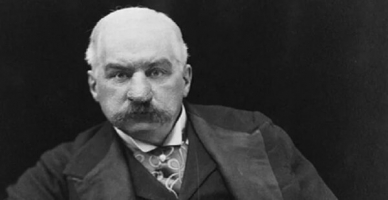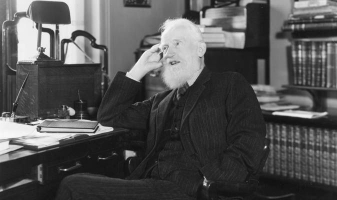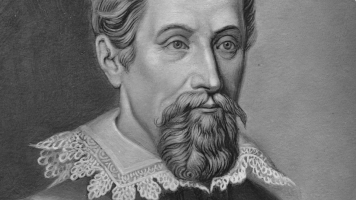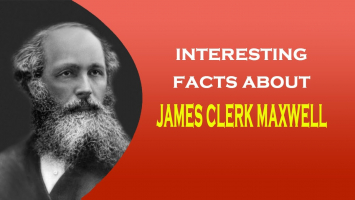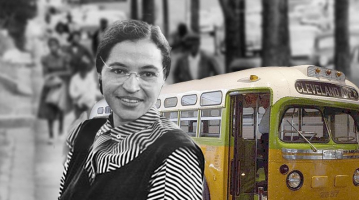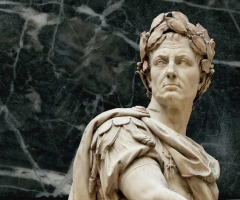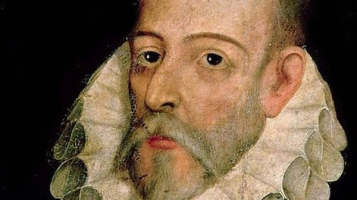Top 6 Interesting Facts about P. T. Barnum
PT Barnum, or Phineas Taylor Barnum in full, is an American performer. He was born on July 5, 1810 in Bethel, Connecticut and died on April 7, 1891 in ... read more...Bridgeport, Connecticut. He is known for sensational forms for the introduction and premiere of circus circuses, public museums and concerts. There are interesting facts about P. T. Barnum that you may not know. But don't worry, the following article of Toplist will provide you with the most complete information.
-
One of the interesting facts about P. T. Barnum is that he was an entrepreneur from an early age. An interesting tidbit about PT Barnum is that when he was just 12 years old, he started making money by selling soldiers food and cherry rum. Later, after relocating to New York City, he got involved in a number of businesses. Some of them were running boarding houses and some were even creating newspapers. In his early years in Bethel, Connecticut, Barnum first showed his aptitude for making money. At neighborhood events, the future entertainer sold snacks and homemade cherry rum, and by the time he was 12 years old, he had raised enough money to purchase his own herd.
Before relocating to New York City in 1834, Barnum launched a weekly newspaper at the age of 20 and started his own little business. He began his career in show business by joining "Barnum's Great Musical and Science Theatre," a theater group. Shortly after, he bought Scudder's American Museum, which he renamed after himself. Barnum had managed a number of companies by the time he was 21 years old, including a department store, a book auction house, a real estate investment firm, and a state-wide lottery network, he published the "Herald of Freedom," his own newspaper.
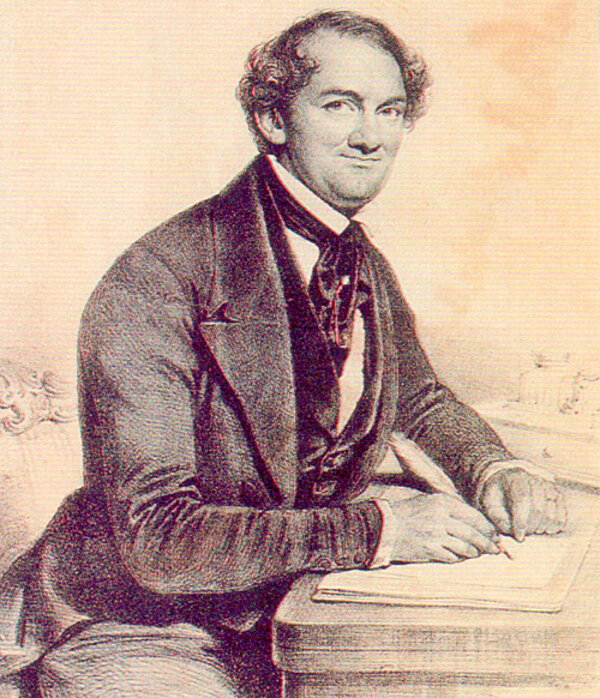
Photo: https://www.brooklynpaper.com/ 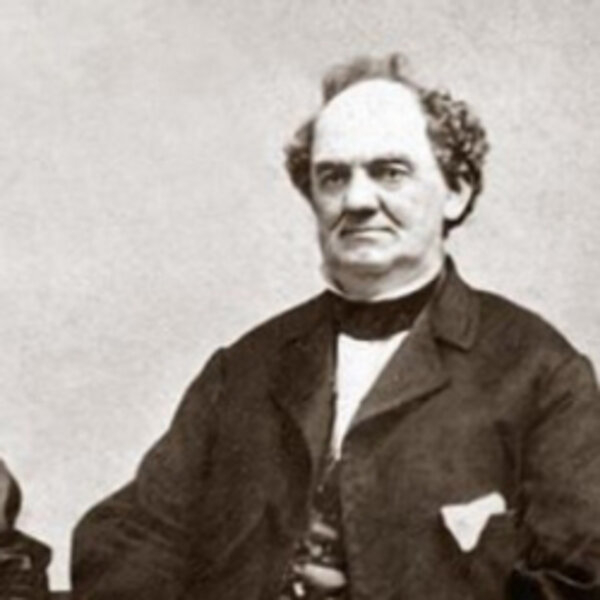
Photo: https://allthatsinteresting.com/ -
One of the interesting facts about P. T. Barnum that must be mentioned is that he found his passion for advertising by displaying a woman who claims to be 161 years old. PT Barnum realized that he had a genuine interest in selling items in 1835. He received $1,000 in exchange for displaying Joice Heth, an elderly slave. She identifies as a 161-year-old former George's Washington Hospital nurse. Barnum seized the chance and took her on a tour of various cities in the Northeast of the country. He earns roughly $1,500 every week. Later, this was referred to as a hoax.
Barnum started his career in show business in 1835 by hiring Joice Heth, a blind slave who was supposedly the 161-year-old former nurse of George Washington. Barnum put Heth on a show in New York and gave her a tour of New England after referring to her as "the most amazing and interesting curiosity in the world." Barnum helped generate attention by spreading rumors that she is actually an autonomous robot controlled by a ventriloquist. People lined up to gaze at her emaciated frame and hear tales about her "Dear little George." Heth's secret was not made public until after she passed away in February 1836. She was identified as very possibly not being older than 80 years old during a public autopsy that Barnum conducted in exchange for 50 cents to cover medical expenses.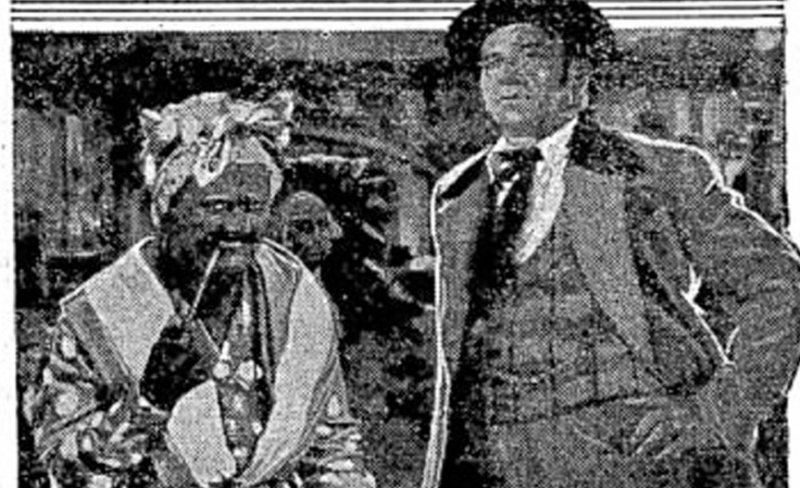
Photo: http://www.bethelhistoricalsociety.com/ 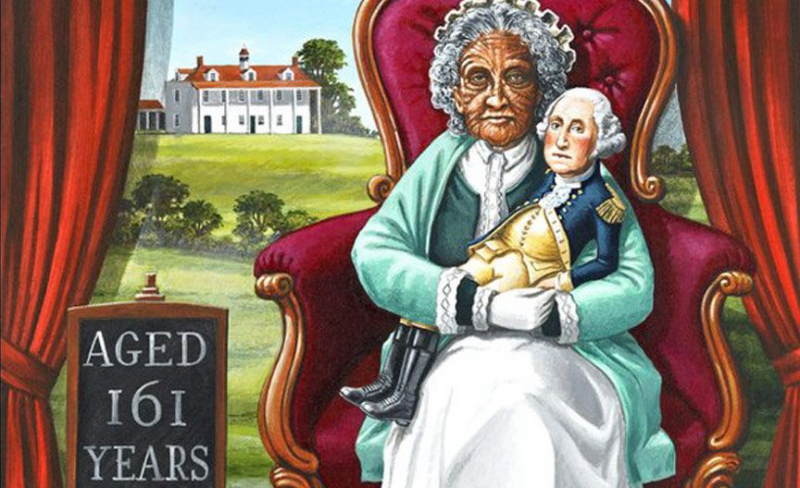
Photo: https://i.pinimg.com/ -
Much of his ongoing fame stems from the circus business, which he started when he was 60 years old. In 1870, he established the "Great Traveling Museum of PT Barnum, Menagerie, Caravan & Hippodrome," which went by a variety of names throughout the years. It was a traveling circus, field camp, and "monster" museum.
Despite the fact that Barnum is best renowned for his three-round circus performances, he didn't begin walking on the heights until he was 60 years old. Prior to that, he was more well-known for owning the American Museum in Manhattan, which had a sizable collection of historical artifacts, aquariums, slaughterhouses, strange zoological specimens, and quirky performances. The museum's most renowned exhibits include "The Little Mermaid Fejee," which is actually the upper half of a monkey sewed onto the bottom of a fish, and "General Tom Thumb," a dwarf youngster that Barnum famously took to audiences with Queen Victoria of England. Barnum did not start his traveling circus until two fires destroyed his museum. In 1881, he joined forces with his well-known partner James Bailey, and the two went on to earn a fortune performing in "The Greatest Show on Earth."
Barnum's American Museum was completely destroyed by fire in 1865. As a result, PT established a brand-new facility close by. However, a fire in March 1868 also completely destroyed this museum.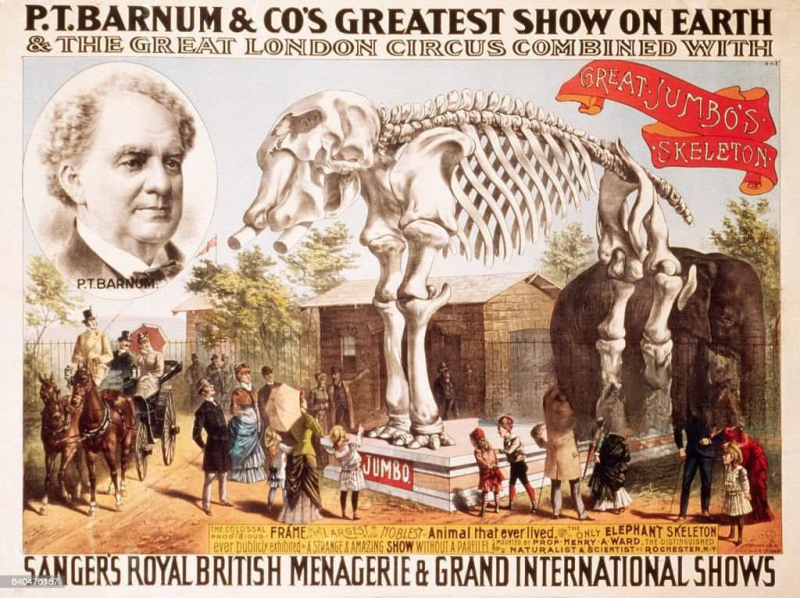
Photo: https://media.gettyimages.com/ 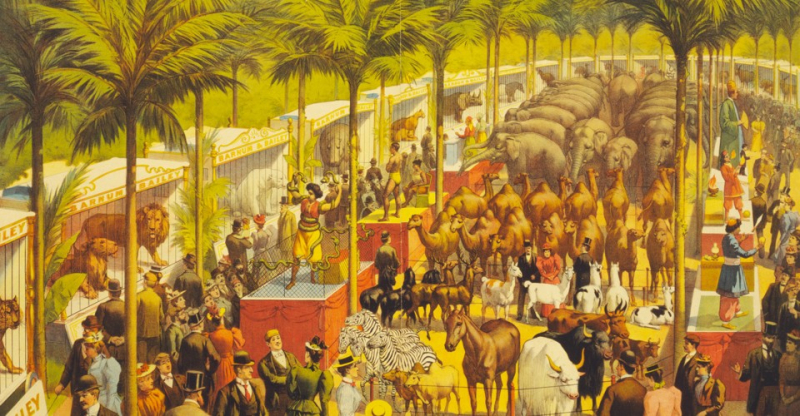
Photo: https://cdn.theatlantic.com/ -
One of the interesting facts about P. T. Barnum is that he helped popularize opera in the United States and earned him over $500,000 from advertising for an opera soprano. Although connected to sideshow acts like Zip the Pinhead and the Nova Scotia Giantess, Barnum is also credited with introducing many Americans to high culture. He committed to touring Jenny Lind, an opera singer from Europe, around several American cities in 1850. Before meeting Barnum, Lind was hardly known; he had never heard of a soprano, but he helped her become well-known through the media and a national competition to have a song written for her to perform on stage. He made "Swedish Nightingale" into an instant classic. During the tour, Barnum reportedly made an astounding $500,000, and Lind's fame contributed to the opera becoming a staple in American theaters.
Barnum wants to progress from showcasing freaks to attracting more artists. This transition was originally attempted by him in an ad for an opera singer. He made her a $1,000 per show deal for 150 performances in Canada and the US. Lind used every strategy possible, including media articles and competitions, to advertise his show. It was a sign advertising effort.
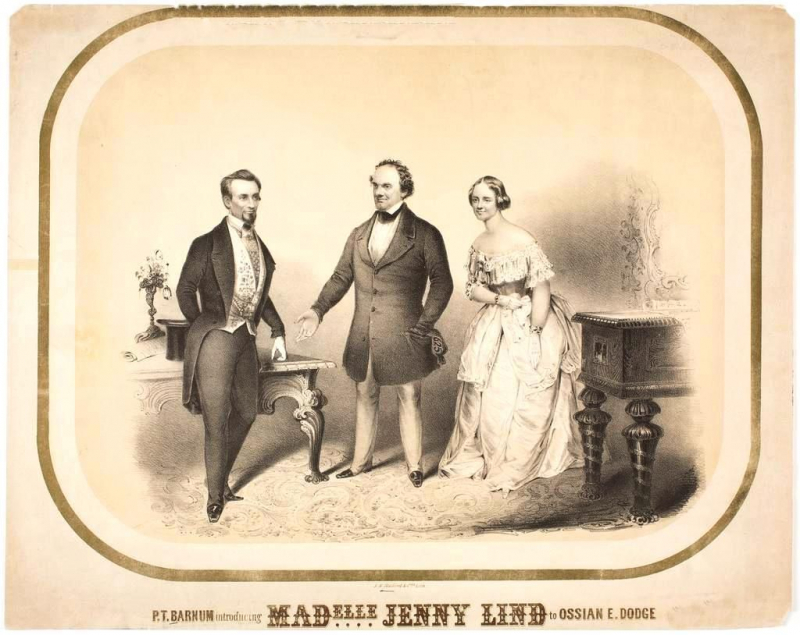
Photo: https://i.pinimg.com/ 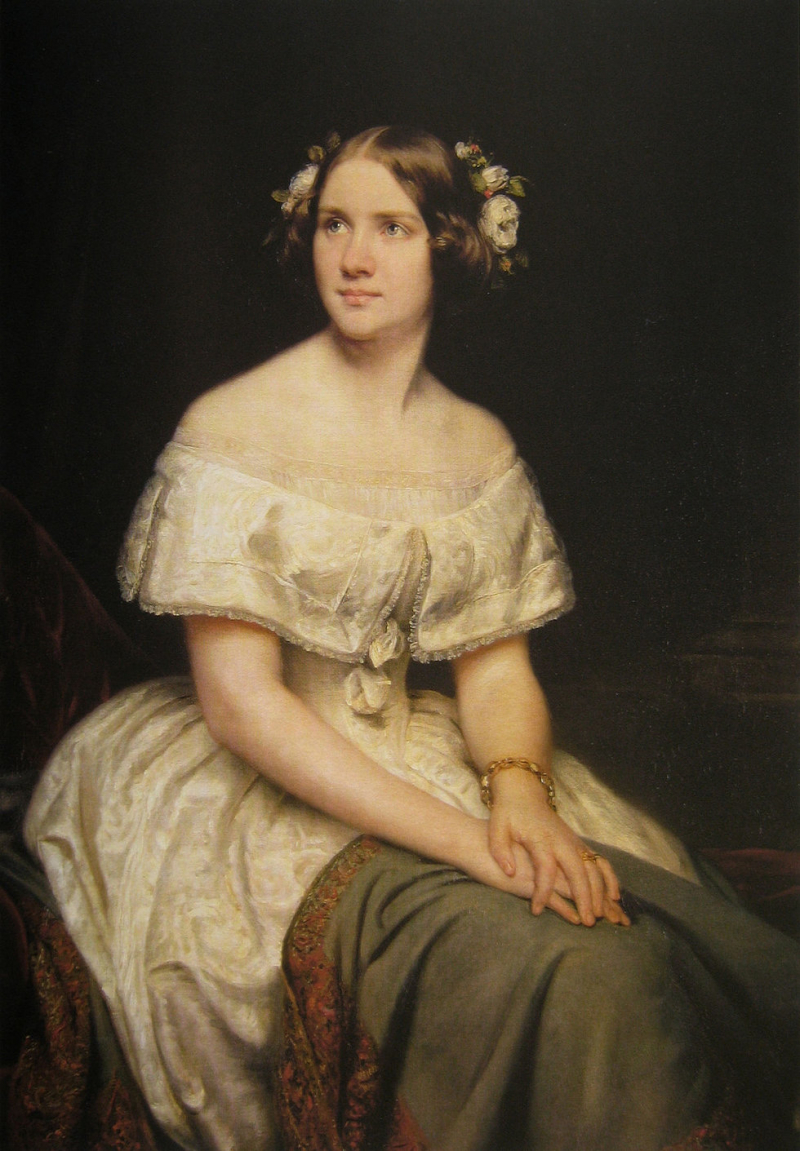
Photo: https://assets.rbl.ms/ -
Barnum acquired "Jumbo," a gigantic six-ton African elephant, from the Zoological Society of London in 1882. In Britain, where the animal is revered as a national treasure, the sale was contentious, but it launched "Jumbomania" in the United States. People went to Barnum's circus where they purchased Jumbo souvenirs such as hats, postcards, and memorabilia. Even the term "jumbo" as a synonym for "large" gained popularity as a result of the elephant's notoriety. Acrobatics, monstrous performances, and General Tom Thumb are still included in Barnum and Bailey Circus, which still perform acts akin to his Traveling Menagerie.
Prior to the establishment of Tufts University, he was appointed to the Board of Trustees. He has made numerous significant contributions to the young institution, including a gift of $50,000 in 1883 (equivalent to $1,454,107 in 2021) for the establishment of the museum, later known as the Barnum Museum of Natural History, and the faculty building.
When Jumbo was unintentionally run over by a freight train and killed in 1885 while doing a performance in Ontario, Jumbo's reign came to an abrupt end. Jumbo's skin was stuffed by Barnum, who later presented it to Tufts University in Massachusetts, where he served as a trustee. Students at Tufts are referred to as "Jumbos" and Jumbo the elephant serves as the school mascot. Pachyderm was a well-liked landmark on campus until it was destroyed by fire in 1975.
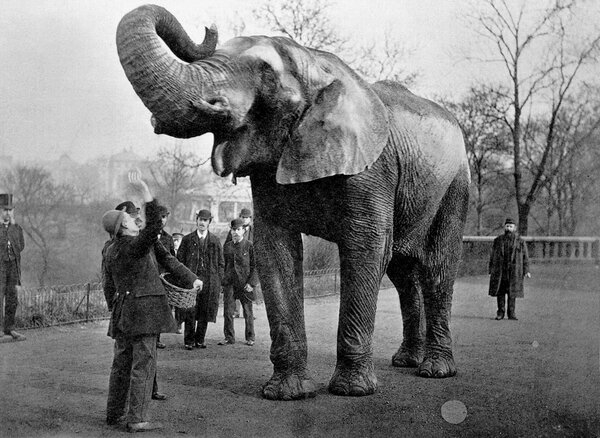
Photo: https://www.factinate.com/ 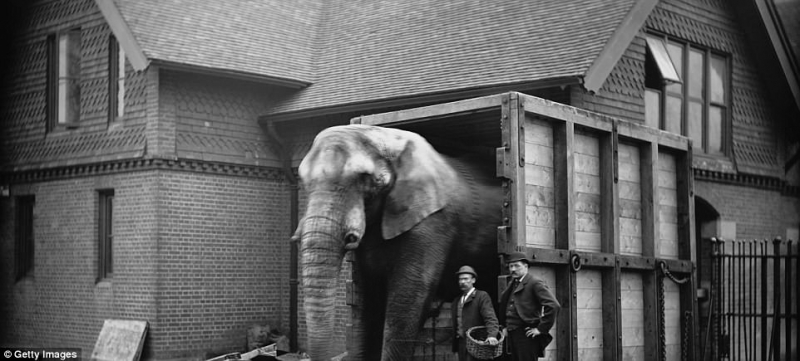
Photo: https://i.dailymail.co.uk/ -
When Barnum was elected as a Republican to the Connecticut General Assembly in 1865, Barnum entered politics for the first time. He rapidly became one of the legislature's most ardent proponents of equal rights and American suffrage despite his prior ownership of the slave Joice Heth's origins in Africa. Then, ironically, he tried to run for the US Congress against a distant relative also named Barnum, but he failed after a contentious campaign. After serving a short time as mayor of Bridgeport, Connecticut, where he had grown up, Barnum later returned to the Connecticut Legislature in the late 1870s and rose to prominence as a strong supporter of pro-moderate changes and end of the use of the death penalty.
He was the legislative patron of a law enacted by the Connecticut General Assembly in 1879 prohibiting the use of "any drug, remedy, or device intended to prevent conception", and also considered it a crime when acting as an accessory to contraceptive use. This law remained in effect in Connecticut until it was overturned by the United States Supreme Court in 1965 in Griswold v. Connecticut. He ran for Congress in 1867 and lost to his third cousin, William Henry Barnum. In 1875, he served as mayor of Bridgeport, Connecticut to improve water supplies, bring gas lighting to the streets, and enforce alcohol and prostitution laws. He was instrumental in founding Bridgeport Hospital, which was founded in 1878, and was its first president.
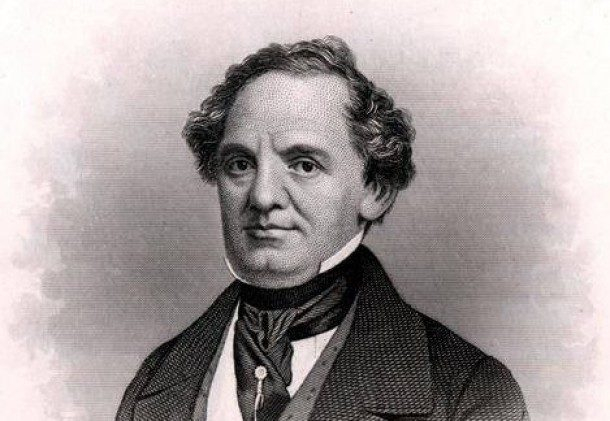
Photo: Barnum also served as a politician. 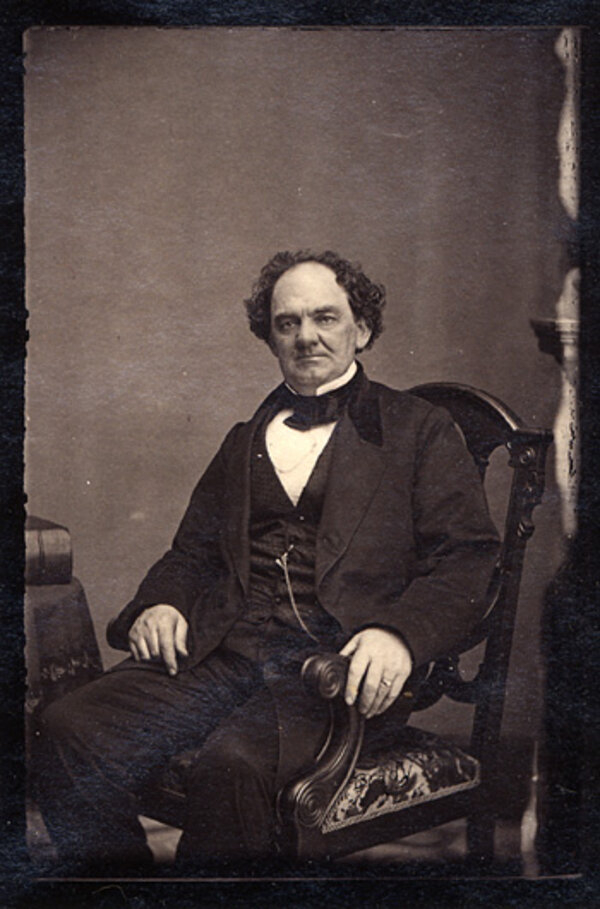
Photo: Barnum also served as a politician.









